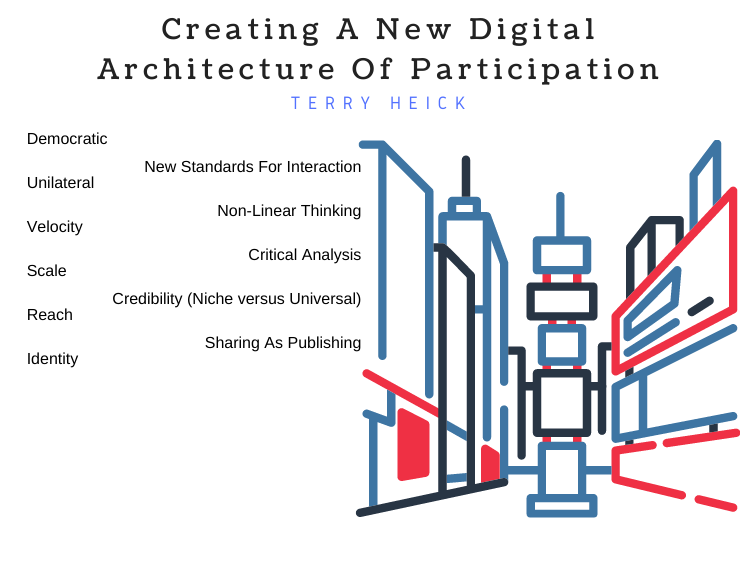
Creating A New Digital Architecture Of Participation
by Terrell Heick
It isn’t clear what the original goal of social media was.
No single person, organization, or platform could have possibly decided this. Once the framework of publishing content–in any constantly changing but not always evolving forms–was established, new standards for engagement emerged.
At its best, the primary goals of most kinds of print publishing in the past were sharing ideas (new, unique, credible, propaganda, etc.) and creating revenue.
Social media has made anything simple to publish, which has changed things. For example, ‘social engagement’ and ‘traction’ have become their currency.
There are new scales for knowledge-sharing–one billion vs. 10,000 potential readers, for example) and criteria for the credibility of these ideas.
There are new ‘cognitive needs’—critical analysis becomes more important than ever, considering the sheer volume and ‘velocity’ of ideas.
I wrote most of this 10 or 12 years ago and never published it and now a lot of it is outdated but I’ll share it anyway,
The big idea here revolves around how different digital publishing is from physical printing.
Facets of Digital And Social Media
Critical Analysis
Credibility
Bias
Integration
Emotion As Currency
Velocity
Scale
Reach
Identity
New Standards For Interaction & Engagement
Non-Linear Thinking